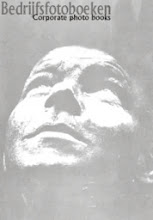.JPG)
A dress code will be observed
Think you stand out in a crowd? Not according to a fascinating photographic exhibition
Elizabeth DaySunday February 17, 2008
Observer
 There is a scene in Monty Python's Life of Brian where the eponymous hero addresses a vast crowd of devoted followers who have mistaken him for the Messiah. 'You are all individuals,' he shouts. 'Yes,' they reply with one voice. 'We are all individuals.'
There is a scene in Monty Python's Life of Brian where the eponymous hero addresses a vast crowd of devoted followers who have mistaken him for the Messiah. 'You are all individuals,' he shouts. 'Yes,' they reply with one voice. 'We are all individuals.'
It is the sort of joke that delights Dutch photographer Ari Versluis, who has spent the last 14 years documenting the disconnection between our human desire to feel unique while also belonging to a greater whole. Since 1994, he and his stylist, Ellie Uyttenbroek, have travelled the world seeking to document the dress codes of different social and cultural groups. What they discovered was a series of modern fashion tribes - people who dress the same, often without even realising it.
 In Beijing, they found students wearing brightly coloured tracksuits and double-strapped rucksacks. In Bordeaux, they photographed a series of housewives in the same subconscious uniform of dreary beige dresses carrying capacious handbags. In Rotterdam, it was young men in graphic-print hooded tops, each one posing with the same slouched shoulders and sulky stares. In Praia, Cape Verde, they sought out the elderly men with flat caps and high-waisted trousers who looked like extras from Buena Vista Social Club
In Beijing, they found students wearing brightly coloured tracksuits and double-strapped rucksacks. In Bordeaux, they photographed a series of housewives in the same subconscious uniform of dreary beige dresses carrying capacious handbags. In Rotterdam, it was young men in graphic-print hooded tops, each one posing with the same slouched shoulders and sulky stares. In Praia, Cape Verde, they sought out the elderly men with flat caps and high-waisted trousers who looked like extras from Buena Vista Social Club
According to Wim van Sinderen, senior curator of the Museum of Photography in the Hague, Versluis and Uyttenbroek provide 'an almost scientific, anthropological record of people's attempts to distinguish themselves from others by assuming a group identity.'
 Now they are training their forensic sights on the UK for the first time. From 26 February, Exactitudes, a collection of their intricate collages of 12 individual images, will be displayed at Selfridges in central London. Over the course of three weeks, they also hope to interpret the city's dress codes by scouting shoppers and photographing them.
Now they are training their forensic sights on the UK for the first time. From 26 February, Exactitudes, a collection of their intricate collages of 12 individual images, will be displayed at Selfridges in central London. Over the course of three weeks, they also hope to interpret the city's dress codes by scouting shoppers and photographing them.
'The English invented fashion in a tribal way,' says Versluis. 'The groups I hope to photograph in London include a certain type of businesswoman, wearing all grey, which we don't see on the Continent so much. Then there's a lot of nu-rave going on, young kids wearing fluorescent things. It's a generation that likes to be really visible in clothes. Then you also have the liberated Islamic women who are very fashionable and very pretty in their scarves, with beautiful make-up.'
 Tokyo, he says, has been the most self-consciously fashionable city so far. 'There, they wear things without the connotations we have in the West; they are free from that link with the past. I would wear a Clash T-shirt because I remember the band, because I know what came before and after. They wear it just because they like the T-shirt.'
Tokyo, he says, has been the most self-consciously fashionable city so far. 'There, they wear things without the connotations we have in the West; they are free from that link with the past. I would wear a Clash T-shirt because I remember the band, because I know what came before and after. They wear it just because they like the T-shirt.'
Do his subjects ever feel taken aback when they realise that they are dressing like other people? 'Deep down, even when they feel like an individual, they know that fashion is a language and they want to be able to speak it well. Most people know exactly what they're doing.
'But there are also the groups, like the Bordeaux housewives, who, when we ask them to be photographed think, "Why are you interested in me?" Then you explain and they suddenly realise that they have subconsciously been copying the women of the same age they see around them.
 'That applies to photographers too,' he says, laughing. 'They all used to dress in a similar way, with jackets full of pockets, but I tend to be a chameleon. When I'm photographing various groups of people, I dress like them, to fit into the location I'm in.'
'That applies to photographers too,' he says, laughing. 'They all used to dress in a similar way, with jackets full of pockets, but I tend to be a chameleon. When I'm photographing various groups of people, I dress like them, to fit into the location I'm in.'
He is unsure how he will dress when he comes to London, although it's highly doubtful he'll be sporting a jacket full of pockets. He wouldn't, after all, want to look like everyone else.
guardian.co.uk © Guardian News and Media Limited 2008
See for Exactitudes Ari Versluis ... & see also Hans Eijkelboom ...
Think you stand out in a crowd? Not according to a fascinating photographic exhibition
Elizabeth DaySunday February 17, 2008
Observer
 There is a scene in Monty Python's Life of Brian where the eponymous hero addresses a vast crowd of devoted followers who have mistaken him for the Messiah. 'You are all individuals,' he shouts. 'Yes,' they reply with one voice. 'We are all individuals.'
There is a scene in Monty Python's Life of Brian where the eponymous hero addresses a vast crowd of devoted followers who have mistaken him for the Messiah. 'You are all individuals,' he shouts. 'Yes,' they reply with one voice. 'We are all individuals.'It is the sort of joke that delights Dutch photographer Ari Versluis, who has spent the last 14 years documenting the disconnection between our human desire to feel unique while also belonging to a greater whole. Since 1994, he and his stylist, Ellie Uyttenbroek, have travelled the world seeking to document the dress codes of different social and cultural groups. What they discovered was a series of modern fashion tribes - people who dress the same, often without even realising it.
 In Beijing, they found students wearing brightly coloured tracksuits and double-strapped rucksacks. In Bordeaux, they photographed a series of housewives in the same subconscious uniform of dreary beige dresses carrying capacious handbags. In Rotterdam, it was young men in graphic-print hooded tops, each one posing with the same slouched shoulders and sulky stares. In Praia, Cape Verde, they sought out the elderly men with flat caps and high-waisted trousers who looked like extras from Buena Vista Social Club
In Beijing, they found students wearing brightly coloured tracksuits and double-strapped rucksacks. In Bordeaux, they photographed a series of housewives in the same subconscious uniform of dreary beige dresses carrying capacious handbags. In Rotterdam, it was young men in graphic-print hooded tops, each one posing with the same slouched shoulders and sulky stares. In Praia, Cape Verde, they sought out the elderly men with flat caps and high-waisted trousers who looked like extras from Buena Vista Social ClubAccording to Wim van Sinderen, senior curator of the Museum of Photography in the Hague, Versluis and Uyttenbroek provide 'an almost scientific, anthropological record of people's attempts to distinguish themselves from others by assuming a group identity.'
 Now they are training their forensic sights on the UK for the first time. From 26 February, Exactitudes, a collection of their intricate collages of 12 individual images, will be displayed at Selfridges in central London. Over the course of three weeks, they also hope to interpret the city's dress codes by scouting shoppers and photographing them.
Now they are training their forensic sights on the UK for the first time. From 26 February, Exactitudes, a collection of their intricate collages of 12 individual images, will be displayed at Selfridges in central London. Over the course of three weeks, they also hope to interpret the city's dress codes by scouting shoppers and photographing them.'The English invented fashion in a tribal way,' says Versluis. 'The groups I hope to photograph in London include a certain type of businesswoman, wearing all grey, which we don't see on the Continent so much. Then there's a lot of nu-rave going on, young kids wearing fluorescent things. It's a generation that likes to be really visible in clothes. Then you also have the liberated Islamic women who are very fashionable and very pretty in their scarves, with beautiful make-up.'
 Tokyo, he says, has been the most self-consciously fashionable city so far. 'There, they wear things without the connotations we have in the West; they are free from that link with the past. I would wear a Clash T-shirt because I remember the band, because I know what came before and after. They wear it just because they like the T-shirt.'
Tokyo, he says, has been the most self-consciously fashionable city so far. 'There, they wear things without the connotations we have in the West; they are free from that link with the past. I would wear a Clash T-shirt because I remember the band, because I know what came before and after. They wear it just because they like the T-shirt.'Do his subjects ever feel taken aback when they realise that they are dressing like other people? 'Deep down, even when they feel like an individual, they know that fashion is a language and they want to be able to speak it well. Most people know exactly what they're doing.
'But there are also the groups, like the Bordeaux housewives, who, when we ask them to be photographed think, "Why are you interested in me?" Then you explain and they suddenly realise that they have subconsciously been copying the women of the same age they see around them.
 'That applies to photographers too,' he says, laughing. 'They all used to dress in a similar way, with jackets full of pockets, but I tend to be a chameleon. When I'm photographing various groups of people, I dress like them, to fit into the location I'm in.'
'That applies to photographers too,' he says, laughing. 'They all used to dress in a similar way, with jackets full of pockets, but I tend to be a chameleon. When I'm photographing various groups of people, I dress like them, to fit into the location I'm in.'He is unsure how he will dress when he comes to London, although it's highly doubtful he'll be sporting a jacket full of pockets. He wouldn't, after all, want to look like everyone else.
guardian.co.uk © Guardian News and Media Limited 2008
See for Exactitudes Ari Versluis ... & see also Hans Eijkelboom ...
.JPG)













Geen opmerkingen:
Een reactie posten